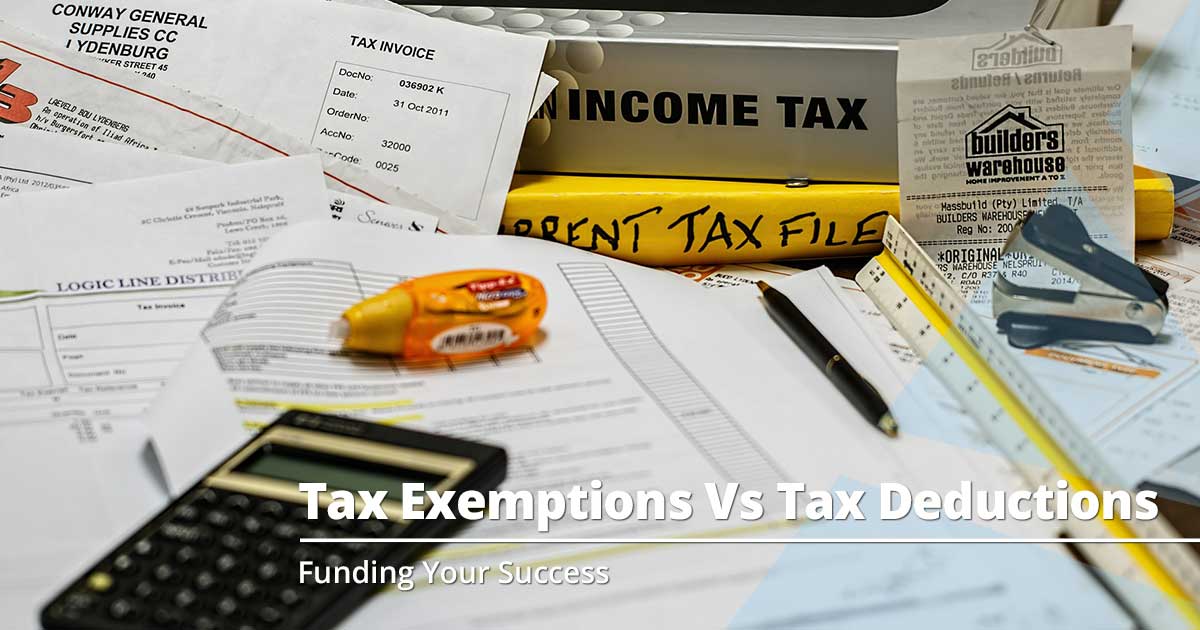Tax Exemptions vs. Tax Deductions: What’s the Difference?

Taxes are confusing no matter how you slice it—which is why so many small business owners (and individuals, too) choose to seek assistance from a tax professional when that dreaded time of year comes around. With tax season slowly creeping up, we wanted to take this opportunity to address a common financial question: What’s the difference between a tax exemption and a tax deduction? To be clear, exemptions and deductions both serve a similar function, which is to lower the amount of income subject to taxation by the federal government. Stick around as we break these two items down in a way that makes sense.
What is a Tax Exemption?
In terms of a small business, being classified as a tax-exempt business essentially means you don’t have to pay any sort of federal income tax. Why? According to the U.S. Chamber of Commerce, “That’s because the goal of the organization isn’t to earn a profit, and its owners don’t make a profit from the business as well.” Types of businesses that fall into this category include charities, because donors are permitted to write their donations off on their tax returns—this write-off is part of what makes charitable giving so attractive to people. Art museums, humane societies, and veterans’ organizations are just a few of the business types that are tax-exempt under the law.
There’s also a sales-tax exemption to consider. While there is no “federal” sales tax, 45 states have their own sales tax in place. Then, there are 38 additional states that also enforce local taxes on top of state sales tax. There are laws, timetables, and exemptions to contend with – which makes sales tax questions from small business owners incredibly frequent. If you are a tax-exempt business, it’s possible you also won’t need to pay sales tax. Other types of sales-tax exemptions can be product-based (in some states, items like groceries can’t be charged a sales tax); use-based (items intended for resale, for instance); or buyer-based (non-profits or if the buyer is from a state with no sales taxes in place).
What is a Tax Deduction?
Also known as a tax write-off, business tax deductions can save small business owners a great deal of money in the long run. Simply put, a deduction is an expense incurred for your small business that can be deducted from the amount of taxable income you’ve made over the year. Common tax deductions include advertising costs, real estate, the salaries of your employees, and travel expenses. But before you try to claim anything as a tax deduction, be sure to check with your accountant to make sure it’s something relevant to your business. You can also check out our article 7 Common Tax Deductions for Small Businesses to learn more!
The pros here at ARF Financial are well versed in all things finances, so we’re here to help you navigate the world of small business ownership and all the questions that come with it. Check out our loan consulting team today and learn more about what makes them such experts. Securing a small business loan from ARF Financial is made much easier thanks to their knowledge and guidance, and your loan specialist is ready to stand by you every step of the way—way beyond when the papers are signed. We’re here to be your partners in success!

